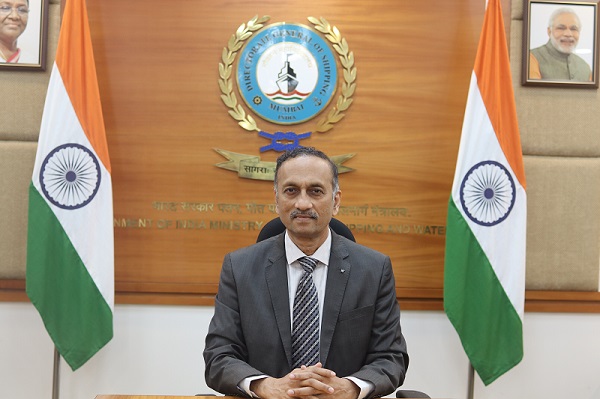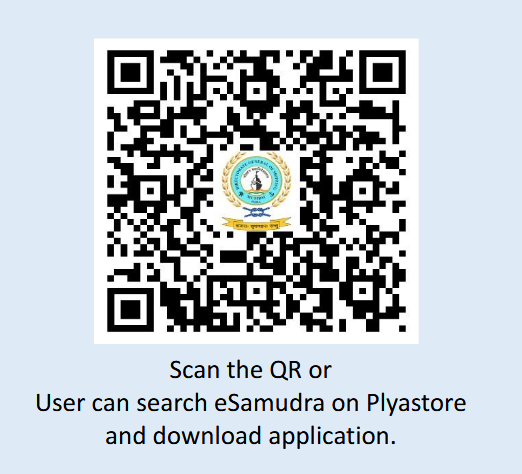Indian Shipping - Global Perspective
International Legislation
10.1 Shipping, being an international activity, is required to conform to international regulations, treaties, and similar bilateral agreements. Until the end of the Second World War, most agreements were confined to a few nations and originated from British or European laws or practices. With the establishment of the U.N.O., a body under its auspices was founded, known as the Inter-Governmental Maritime Consultative Organization – later renamed as the International Maritime Organization (IMO). The extensive work done by this body encompasses almost every branch of shipping activity, contributing significantly to the safety of life at sea. The IMO, when examining any subject, receives advice, suggestions, and criticism from all its member nations.
10.2 India is a party to several conventions developed by the IMO and the United Nations Organization. The International Labour Organization (ILO) also develops conventions and recommendations relating to the working conditions of seafarers, their safety, identity, and other welfare measures for the seafaring community at large. India is a member of the ILO as well. To give effect to the requirements of all these conventions, suitable statutory provisions have been made in the Merchant Shipping Act, 1958. The Act is amended as required to provide statutory backing for the implementation of these conventions.
10.3 As far as the IMO is concerned, a list of conventions and protocols developed since its inception is given below. Out of 36 instruments developed so far, India has ratified 18 instruments, and another seven are under consideration for ratification. Some of the conventions are not yet in force internationally. For others, considering national interest, India has decided not to ratify them. The following is the list of final instruments developed by the IMO, their date of entry into force internationally, and India’s position on their ratification.
| Instrument | In force w.e.f. | India's position |
|---|---|---|
| 1. International Convention for the Safety of Life at Sea 1974 as amended SOLAS ((Amended) 1974)) | 25.5.1980 | Ratified |
| 2. Protocol of 1978 relating to the International Convention for the Safety of Life at Sea, 1974 | 1.5.1982 | Ratified |
| 3. Protocol of 1988 relating to the International Convention for the Safety of Life at Sea 1974 (SOLAS PROT (HSSC)1988) | Not Yet In Force | |
| 4. Convention of the International Regulations for Preventing Collisions at Sea, 1972 as amended (COLREG (amended) 1972) | 15.7.1977 | Ratified |
| 5. The protocol relating to the International Convention for the Prevention of pollution from Ships, 1973 as amended (MARPOL(Amended)73/78) | 2.10.1983 | Ratified |
| 6. Convention on Facilitation of International Maritime Traffic 1965 as amended (FAL (Amended) 1965) | 5.3.1967 | Ratified |
| 7. International Convention of Loadline, 1966 (LL 1966) | 21.7.68 | Ratified |
| 8. Protocol of 1988 relating to the International Convention on Loadlines, 1966 (LL PROT(HSSC) 1988) | Not Yet In Force | |
| 9. International Convention on Tonnage Measurement of ships, 1969 (TONNAGE 1969) | 18.7.82 | Ratified |
| 10. International Convention relating to Intervention on the High Seas in cases of Oil Pollution Casualties 1969 (Intervention 1969) | 6.5.75 | Under Consideration. |
| 11. Protocol relating to Intervention on High Seas in cases of pollution by substances other than oil 1973 (INTERVENTION PROT 1973) | 30.3.83 | |
| 12. International Convention on Civil Liability for oil pollution damage, 1969 (CLC 1969) | 19.6.75 | Ratified |
| 13. Protocol to the International Convention on Civil Liability for Oil Pollution Damage, 1969 (CLC PROT 1976) | 8.4.81 | Ratified |
| 14. Protocol of 1992 to amend the International Convention on Civil Liability for Oil Pollution Damage 1969 (CLC PROT 1992) | 30.5.96 | |
| 15. Special Trade Passenger Ships Agreement, 1971 (STP 1971) | 2.1.74 | Ratified |
| 16. Protocol on Space Requirement for Special Trade Passenger Ships 1973 (SPACE STP 1973) | 2.6.77 | Ratified |
| 17. Convention relating to Civil Liability in the field of Maritime Carriage of Nuclear Material, 1971 (NUCLEAR 1971) | 15.7.75 | Considered and decided not to ratify. |
| 18. International Convention on the establishment of an International Fund for compensation of Oil Pollution Damage 1971 (FUND 1971) | 16.10.78 | Ratified |
| 19. Protocol to the International Convention on the establishment of an International Fund for compensation for oil pollution damage 1971(FUND PROT 1976) | 22.11.94 | Ratified |
| 20.. Protocol of 1992 to amend the International Convention on the establishment of an International Fund for the compensation of Oil Pollution Damage 1971(FUND PROT 1992) | 30.5.96 | Under Consideration |
| 21. International Convention for Safe containers, 1972 as amended (CSC (Amended) 1972) | 6.9.77 | Ratified |
| 22. Athens Convention relating to the Carriage of Passengers and their luggage by Sea 1974 (PAL 1974) | 28.4.87 | |
| 23. Protocol to the Athens Convention relating to the Carriage of Passengers and their luggage by Sea 1974 (PAL PROT 1976) | 30.4.89 | |
| 24. Protocol of 1990 to amend the Athens Convention relating to the Carriage of Passengers and their luggage by Sea 1974 (PAL PROT 1990) | Not Yet In Force | |
| 25. Convention Agreement on the International maritime Satellite Organization (INMARSAT) as amended (INMARSAT c(Amended)) | 16.7.79 | Ratified |
| 26. Operating Agreement on the International Maritime Satellite Organization INMARSAT (INMARSAT OA)(Amended) | 16.7.79 | Ratified |
| 27. Convention on limitation of liability for Maritime Claims 1976 (LMC 1976) | 1.12.86 | |
| 28. International Convention on Standards of Training Certification and Watch-keeping for seafarers, 1978 (STCW 1978) | 28.4.84 | Ratified |
| 29. International Convention on Maritime Search and Rescue, 1979 (SAR 1979) | 22.6.85 | Under Consideration. |
| 30. Convention for suppression of Unlawful Acts against the Safety of Maritime Navigation (SWA 1988) | 1.3.92 | Under Consideration. |
| 31. Protocol for the suppression of unlawful acts against the Safety of Fixed Platforms located on the Continental Shelf (SWA PROT 1988) | 1.3.92 | Under Consideration. |
| 32. International Convention on Salvage 1989 (SALVAGE 1989) | 14.7.96 | Ratified |
| 33. International Convention on Oil Pollution Preparedness response and cooperation 1990 (OPRC 1990) | 13.5.95 | Under Consideration. |
| 34. Convention on the Prevention of Marine Pollution by Dumping of Wastes, and other matter 1972 as amended (LDC (Amended) 1972) | 30.8.75 | Consideration kept in abeyance |
| 35. International Convention on Standard of Training Certification and Watch-keeping for fishing Vessels Personnel (STCW-F) | Not yet In force | |
| 36. Torremolinos Protocol of 1993 relating to the Terremolinos International Convention for the Safety of Fishing Vessels 1977 (SFV PROT 1993) | Not yet In force |
10.4 The position in respect of the remaining conventions and protocols (after deducting those ratified and under consideration mentioned above) is as follows:
(i) Protocol relating to Intervention on the High Seas in cases of pollution by substances other than oil, 1973.
This protocol, which came into force on 30.3.87, contains provisions relating to pollution of the High Seas by sewage, nuclear substances, or chemicals. The provisions are also relevant in terms of the Intervention Convention, 1969. Therefore, action will be initiated after examining the issues involved, including the financial implications, to ratify this protocol.
(ii) Convention relating to Civil Liability in the field of Maritime Carriage of Nuclear Materials, 1971.
This Convention, which came into force on 15.7.75, primarily lays down the liability of owners of vessels carrying nuclear material. It confirms and reinforces the special system established by the Convention on Civil Liability for Nuclear Damage, 1963 (also known as the Vienna Convention). This subject has also been covered in the Convention on Third Party Liability in the field of Nuclear Energy, 1960 (also known as the Paris Convention). The Department of Atomic Energy, while considering ratification of the 1963 Vienna Convention, expressed that India should not become a party to it for the following main reasons:
(a) No major country has become a party to it. Consequently, participation in the Convention would have very limited advantages.
(b) Its features are of little appeal or applicability to India, and no benefits will accrue to India by participating in it.
They further advised that no useful purpose would be served by ratifying the present Convention without also becoming a party to the Vienna Convention. The Ministry of Surface Transport, after considering the views expressed by the Department of Atomic Energy, agreed not to pursue ratification of this Convention. The position remains unchanged to date.
(iii), (iv) & (v) The Athens Convention relating to the Carriage of Passengers and their Luggage by Sea, 1974 and the 1976 and 1990 Protocols.
This Convention lays down the liability of shipowners for death or personal injury to a passenger, as well as for loss of or damage to passenger luggage, if the incident causing such damage was due to the fault or neglect of the carrier or their employees. The liability has been fixed at high levels (ranging from 18,000 francs for loss/damage to 700,000 francs for death or personal injury). Indian shipowners, who operate passenger services only in coastal waters, have opposed this, stating that acceptance of such heavy liability would necessitate a substantial increase in passenger fares and insurance coverage. The provisions of the Merchant Shipping Act already provide for shipowners' liability in personal and property claims, though at lower levels than those under the Athens Convention. There was also a proposal to amend the M.S. Act, 1958 to introduce provisions for compensation up to Rs. 1 lakh for passenger death or injury, irrespective of fault. However, the M.S. Act Review Committee recommended giving powers to the Central Government to fix lower limits of liability for shipowners operating in coastal trade, to be notified from time to time. The Committee did not favor fixed compensation irrespective of fault, as claimants could pursue higher compensation within the government-notified limits. Hence, the ratification of the Convention/Protocols has not been taken up.
(vi) The Convention on Limitation of Liability for Maritime Claims, 1976.
This Convention replaced the International Convention relating to the Limitation of Liability of Owners of Seagoing Ships, 1957, and came into force on 1st December 1986. The 1957 Convention's provisions have already been incorporated in the M.S. Act, 1958. The 1976 Convention primarily increases the liability limits for loss of life or property damage by nearly two to four times and includes specific provisions for compensation for passenger injury, death, or luggage loss, similar to the Athens Convention.
(vii) The Torremolinos International Convention on the Safety of Fishing Vessels, 1977 (revised by Protocol of 1993).
This Convention, which is not yet in force, prescribes international standards for construction, survey, equipment, maintenance, and operation of fishing vessels powered by mechanical propulsion. Its ratification has not yet been considered by India, as there are very few such fishing vessels operating in Indian waters. However, the provisions are kept in mind when approving technical plans for the construction of new fishing vessels.































































































































